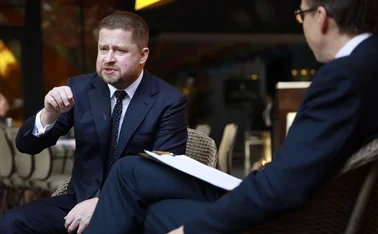
Central bankers admit they are not yet prepared for crypto assets
Uncertainty around the assets’ use and regulation calls for further research, debate finds

Central banks are not fully prepared for the use and regulation of crypto assets, given the remaining uncertainty, according to central bankers who gathered in Singapore on September 6.
In an Oxford-style debate, hosted at Central Banking’s FinTech and RegTech Global Summit, central bankers discussed issues surrounding the regulation of these emerging assets, concluding there was not enough knowledge within the community to construct appropriate regulation.
Uncertainty surrounding the design and use of the crypto assets, and how they would circulate in the financial system formed the crux of the debate.
In recent months, official sector bodies have disagreed on the terminology surrounding the assets, with several terms being thrown around.
The term ‘cryptocurrency’ has been dismissed by many central bankers, given the assets’ inherent flaws in behaving like currencies – they perform poorly, both as a store of value and a unit of account. ‘Crypto token’ is also not widely used among the community.
Reports by the Financial Stability Board use ‘crypto asset’, which appears to have been adopted by many central bankers.
Doubts remain over how crypto assets will be used in future and whether they could replace cash. During the debate, central bankers argued it would be highly unlikely for crypto assets to ever become a substitute for cash in their current form.
A process of natural selection would need to take place for crypto assets to ever have a chance of becoming mainstream, they said. Estimates put the number of crypto assets at more than 1,500.
Divided on regulation
On regulation, the central bankers appeared divided, given the inherent riskiness of the asset and the obligation of central banks to maintain financial stability.
Some central banks have already placed a blanket ban on the use of crypto assets, while others are merely advising investors to trade the instruments at their own risk. A third group is treating them in a similar way to securities – another form of risky asset, which is regulated.
Thus it appears unlikely that there will be any form of global regulation for crypto assets in the near future.
Debaters agreed central banks need to improve their communication with firms operating in the crypto asset space to improve understanding of how these instruments behave.
There was also some agreement that central banks should foster technological talent among their staff, but there was a split around whether such individuals would be able to provide the expertise needed to understand the risks that crypto assets would pose to the banking sector.
At the end of the debate, audience members were asked to vote on this motion: ‘This conference believes that central banks and regulators are not prepared for cryptocurrencies.’
The results showed 80% of attendees agreed with the statement.
Only users who have a paid subscription or are part of a corporate subscription are able to print or copy content.
To access these options, along with all other subscription benefits, please contact info@centralbanking.com or view our subscription options here: http://subscriptions.centralbanking.com/subscribe
You are currently unable to print this content. Please contact info@centralbanking.com to find out more.
You are currently unable to copy this content. Please contact info@centralbanking.com to find out more.
Copyright Infopro Digital Limited. All rights reserved.
As outlined in our terms and conditions, https://www.infopro-digital.com/terms-and-conditions/subscriptions/ (point 2.4), printing is limited to a single copy.
If you would like to purchase additional rights please email info@centralbanking.com
Copyright Infopro Digital Limited. All rights reserved.
You may share this content using our article tools. As outlined in our terms and conditions, https://www.infopro-digital.com/terms-and-conditions/subscriptions/ (clause 2.4), an Authorised User may only make one copy of the materials for their own personal use. You must also comply with the restrictions in clause 2.5.
If you would like to purchase additional rights please email info@centralbanking.com







